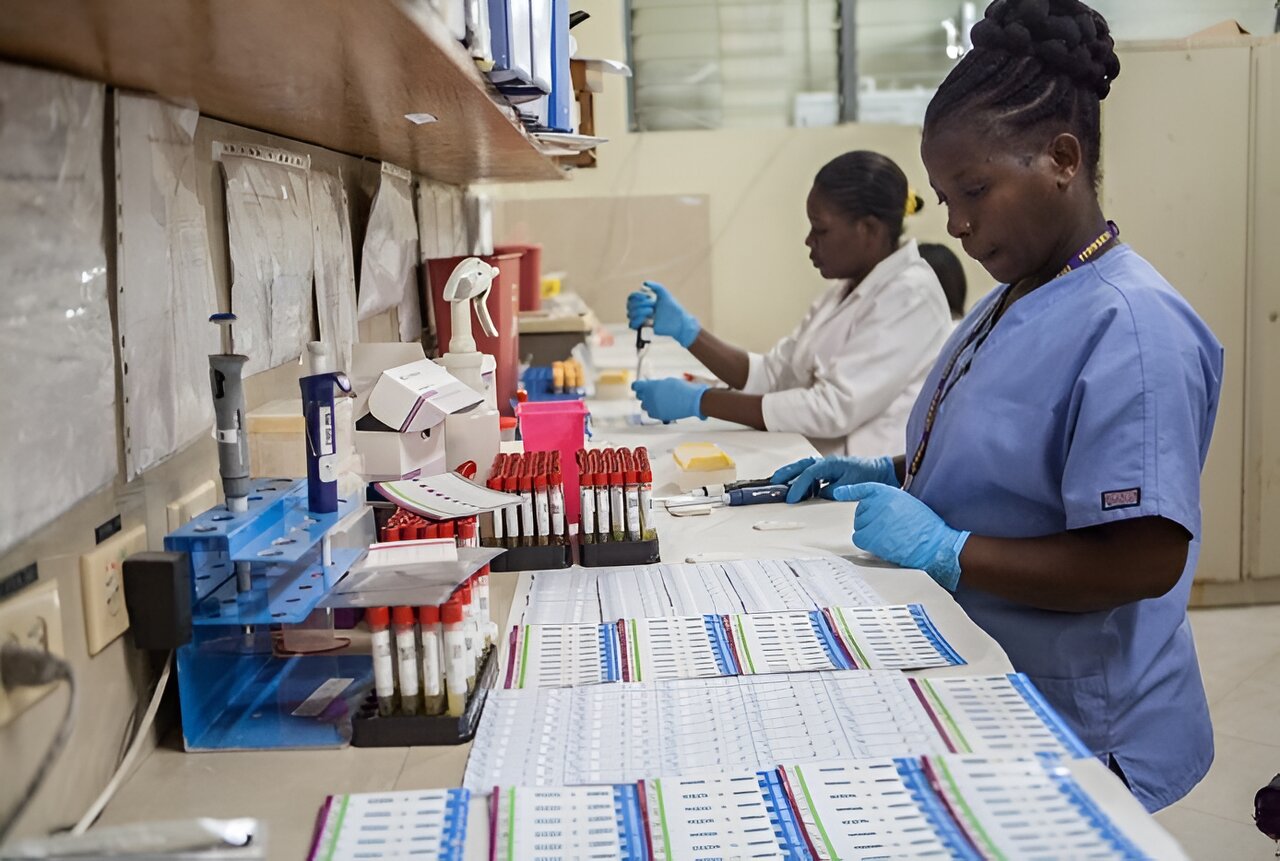Employees at the GHESKIO clinic in Port-au-Prince, Haiti, process laboratory samples. Credit: Bahare Khodabande
Early life heart failure is alarmingly common in urban Haiti – more than 15 times higher than previously estimated – according to a study conducted by researchers at Weill Cornell Medicine in collaboration with the Haitian medical organization GHESKIO. Heart failure occurs when the heart muscle can no longer pump enough blood through the body.
The study indicates that the nature of cardiovascular disease in Haiti, and perhaps other low- and middle-income countries, differs from wealthier countries where ischemic heart disease, also called coronary heart disease, is common. This condition, in which the heart does not receive enough blood flow and oxygen due to narrowing of the heart arteries, was believed to be the global norm.
The findingspublished in The Lancet Regional Health – Americas, are from one of the world’s first population-based cardiovascular clinical trials in a low-income setting designed to understand the heart disease landscape. The cohort included 3,003 residents of Haiti’s capital, Port-au-Prince, who were clinically assessed for heart disease.
Dr. Margaret McNairy and Dr. Lily Yan, members of Weill Cornell Medicine’s Center for Global Health and the Division of General Internal Medicine, collaborated with Dr. Jean Pape, Executive Director of GHESKIO, to lead the investigation. Dr. Pape is also the Howard and Carol Holtzmann Professor of Clinical Medicine at Weill Cornell Medicine. They found that heart failure affected nearly 12% of participants, with an average age of 57, much younger than in the United States.
“What we found was strikingly different from assumptions based on studies in rich countries,” says Dr. McNairy, the lead researcher and associate professor of medicine who has worked with GHESKIO for the past decade. “It is a paradigm shift for our understanding of cardiovascular disease in resource-poor countries and important to guide health planning for future prevention and treatment.”
Cardiovascular disease causes more death and disability worldwide than any other type of condition. However, without data collected on the ground, it was unclear whether people worldwide are affected similarly.
“In a place like Haiti, people live in an environment where they face extreme poverty, increased pollution and high levels of stress, including civil unrest,” says corresponding author Dr. Yan, assistant professor of medicine at Weill Cornell Medicine. “That’s why we thought there would be differences in heart disease and the factors that cause it.” This study tested that suspicion.
Striking risks for an all-too-common problem
GHESKIO community workers recruited residents from a random sample of households in urban Port-au-Prince and invited them to participate by visiting the GHESKIO clinic. Once there, participants answered questions about their health and received a comprehensive physical examination, including blood pressure measurements and blood tests. They also underwent non-invasive tests, including an electrocardiogram (ECG), which measured the electrical activity of the heart, and an echocardiogram, which looked at the function of their heart.
The researchers pored over the data and used international guidelines to determine cardiovascular conditions, including heart failure, stroke, heart attack and chest pain. Nearly 15% of Haitian adults had one or more of these conditions, indicating that cardiovascular disease is a widespread problem. Heart failure, particularly muscle stiffness, affected the majority of these patients.
Their analysis found that elevated blood pressure, known as hypertension, was the most common risk factor for heart failure among Haitians. However, a previous study showed that only 13% of Haitian adults with hypertension had their blood pressure under control.
In building infrastructure to address cardiovascular disease in Haiti, “this study suggests that we need to shift the focus to early prevention of hypertension and heart failure,” said Dr. McNairy. The team is also studying the underlying factors contributing to this health crisis, including the adversities Haitians routinely face such as hunger, poverty, sanitation, stress and other factors.
More information:
Lily D. Yan et al., Spectrum of prevalent cardiovascular disease in urban Port-au-Prince, Haiti: a population-based cross-sectional study, The Lancet Regional Health – Americas (2024). DOI: 10.1016/j.lana.2024.100729
Quote: Study in Haiti shows early-onset heart failure is a common form of heart disease in low-income countries (2024, April 29), retrieved April 29, 2024 from https://medicalxpress.com/news/2024-04-haiti -early-onset-heartfailure.html
This document is copyrighted. Except for fair dealing purposes for the purpose of private study or research, no part may be reproduced without written permission. The content is provided for informational purposes only.





















